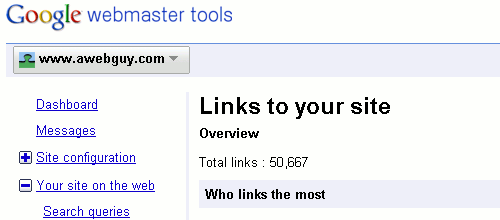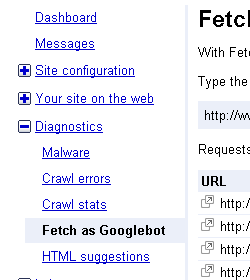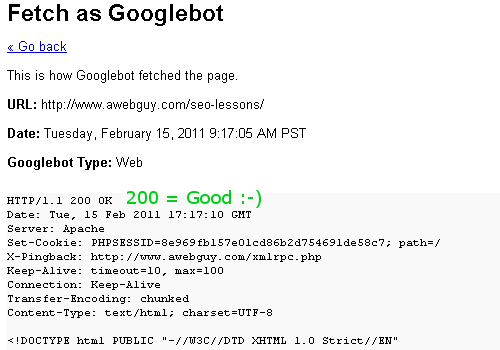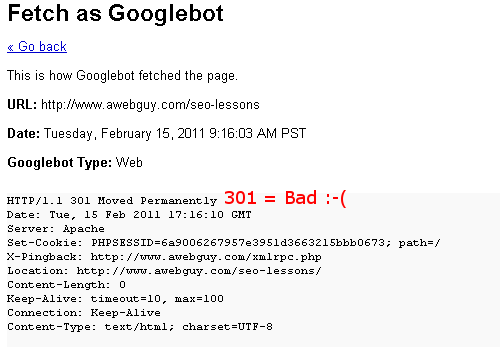
I decided to title this article “Reciprocal Link Exchanges Don’t Work”. Perhaps even more appropriately, what I really mean is that reciprocal link exchanges are fool’s work.
Of course, I also know what people are more likely to search for after some crooked or inexperienced SEO (search engine optimizer) runs off with their money and leaves them with worse results than they started. So that is what I am here to explain. Join in the discussion if you have the need to defend your reciprocal link exchange strategy after reading this.
I know this may put a huge bullseye on my forehead with the slimier side of the SEO industry, but I say “bring it on!” Show me your best reciprocal link exchange, and I will show you foolishly exhaustive efforts with lackluster results.
I am not saying that it is a bad thing to cross-link websites, because sometimes there can be a synergy created. It can be useful in a limited few cases, but reciprocal link exchange is a very weak link building strategy. In fact, it is far more common for reciprocal link exchanges to be counterproductive. I’ll bet the last SEO you talked to didn’t tell you that.
Why Reciprocal Link Exchanges Exist
Links are the single most important and effective means to help your website rank highly in search engines. The links pointing to a website are used by search engines to measure the authority of a website overall, and for a given topic.
There are a lot of important contributors to high search engine ranking, but incoming links are the biggest factor. The structure and content of a website is extremely important, but without links pointing to all of that greatness, it will never rank well for competitive search phrases.
Because of the importance of incoming links, link exchanges have become the focus for many novice search engine optimizers and website owners who just don’t know how much they don’t know. Link exchanges fuel enough failed SEO link building efforts that if we could turn that into electricity, we could light a small country.
There are at least a squillion people out there trying to sell you links and trade links with you. If they have not reached you yet, it is because you don’t have any links. Once you have links to your website, and especially if you have a high Google PageRank, they will come to you in droves! All I have to do is check my email spam folder to find at least a thousand requests to exchange links or to hire some self-proclaimed “expert” to handle all of those link exchanges for me.
Reciprocal Link Exchange Motivation
I told you a bit of the motivation behind people wanting to exchange links with you, but what motivated me to write this? Maybe you think I am just trying to stand my industry on it’s ear, or maybe you will just think I am trying to mislead you. Yes, perhaps I am just trying to fool you in order to keep the SEO mystique alive, and try to cover up the truth about SEO. Maybe this whole “reciprocal link exchange” thing really is the big secret to SEO.
Just in case you are truly skeptical about this, I offer you this quote directly from Google Webmaster Central.
- Links intended to manipulate PageRank
- Links to web spammers or bad neighborhoods on the web
- Excessive reciprocal links or excessive link exchanging (“Link to me and I’ll link to you.”)
- Buying or selling links that pass PageRank
Of course, there are a lot of people who will say that Google is lying, too. The complete failure of that logic is that it is contrary to Google’s own interest to lie about how to rank well in their search engine. Google wants to include your website in their results, and they work hard to try and help website owners to do the right thing. If you still feel skeptical, please read this article titled “Brandon’s Baseball Cards and Google SEO Starter Guide” which explains Google’s motivation, and their efforts to help you.
If you really want more links, do something useful, creative, or otherwise more like sex and bacon. Take it from Google’s head of webspam, Matt Cutts. Here is a video of Matt talking about building links.
Matt Cutts (and common sense) said this: “the best links are earned and given by choice.“ Unless common sense is a totally worthless concept, what Matt said still holds true today, tomorrow, and always.
Reciprocal Link Exchange Foolishness
I will write more about link building soon, but I want to offer you some thoughts about links. If it was really as easy as just trading reciprocal links and submitting your website to search engines and directories, don’t you think the usefulness would wear off? If there was a way to cheat search engines, don’t you think they would fix the problem?
Maybe you heard that the magical fix is to use indirect, three way link exchanges. If you buy into that, you still have the wrong mindset of trying to shortcut the best practices. I mean the practices which work within the guidelines of a well organized system of both technology and people.
Consider that if you are seeking a link exchange with another website, who do you expect it to benefit the most … your website, or the other website? That’s right, you want it to benefit you more than the other guy. Now, when people come to you seeking a link exchange, don’t you think their answer is the same?
Links Are Not Equal in Value
According to Google Webmaster Tools, this blog you are reading has just a little over 50,000 links pointing to it. It is a small number compared to a lot of projects I work on, but large compared to a lot of one-person blogs. The number is not the part which matters the most, and not the point I want to make. They are not all “awesometacular” links from “amazinglicious” websites, but there is not a single one of them that comes by way of a reciprocal link exchange. These links exist because I concentrate on providing value to people first, and search engines second.

Links are not created equally. I could demonstrate this in about as many ways as I can chug a beer, and I am Irish, so that is a lot. Only a limited percentage of the links to any website will provide significant value. As an example of this, just compare the more than 50,000 links referenced in Google Webmaster Tools to the 8,774 which are measured by the respected SEOmoz Open Site Explorer. A huge number of the 50K links are not even visible by most measures. That is the same kind of links that comprise the vast majority of reciprocal link exchanges!

Consider the the ratio of quality links created “organically” because somebody saw value in your website, compared to “junk” links. If you can measure it, don’t you think a search engine such as Google can as well?
Podcast: Play in new window | Download






